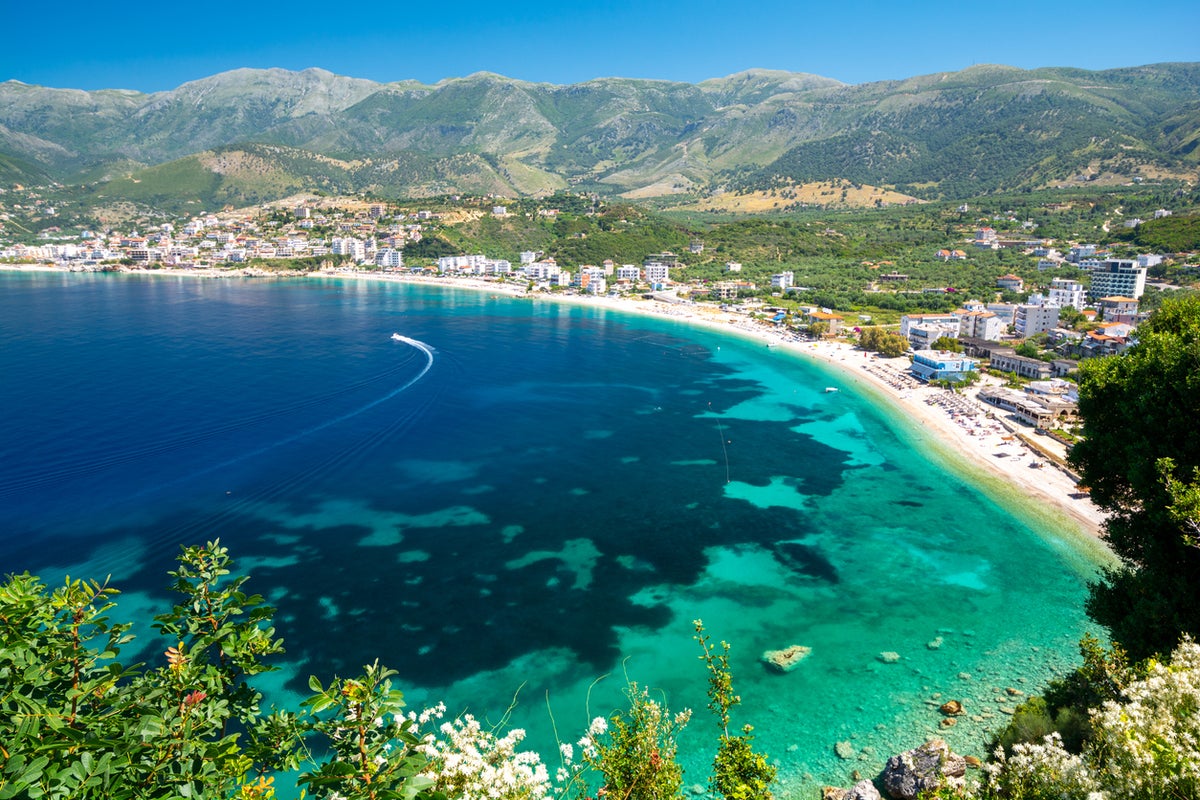
Your support helps us to tell the story
This election is still a dead heat, according to most polls. In a fight with such wafer-thin margins, we need reporters on the ground talking to the people Trump and Harris are courting. Your support allows us to keep sending journalists to the story.
The Independent is trusted by 27 million Americans from across the entire political spectrum every month. Unlike many other quality news outlets, we choose not to lock you out of our reporting and analysis with paywalls. But quality journalism must still be paid for.
Help us keep bring these critical stories to light. Your support makes all the difference.
I first travelled to Albania at the unruly age of 20. With no plans or money, and the long university holidays stretched ahead of me, my mum sensibly suggested I work abroad. Desperate to go somewhere parties took precedence over work, I swerved the farms, hotels, cruises, and schools and, rather predictably, typed “backpackers hostel” into Google. Before I knew it, I was headed to Albania on a ferry from Corfu.
Work in Berat Backpackers Hostel, which I did in exchange for free accommodation and some meals, predominantly revolved around reaching into the fridge and cracking open ice-cold bottles of beers for guests, rearranging pillows on sofas and drinking copious amounts of the national drink, raki. Dubbed the ‘city of a thousand windows’ and listed as a Unesco World Heritage site, the stunning but sleepy Ottoman-era mountainous city of Berat is well worth a visit.
The month I spent in Albania back in 2012 – three weeks in Berat followed by a week travelling around the country on my own – had a dreamlike quality. Fast forward 12 years and my recent trip to Albania was worlds apart but just as magical. Stamped with generic cliches like “hidden gem”, “off the beaten track” and the more geographically specific moniker of “jewel of the Balkans”, Albania thoroughly deserves these platitudes – and its burgeoning status as Europe’s hot new go-to destination.

Read more: How to travel sustainably around Europe by train
Ask many Britons what images Albania conjures up for them, and they will probably mention its Communist history, or perhaps the Albanian mafia’s dominance in the European cocaine market, or maybe even pop megastar Dua Lipa’s heritage. Of course, there is far more to Albania than this. Sit, squirm or snooze on a plane for just under three hours from London and you will be transported to a country of striking natural beauty, where the sun shines around 300 days a year and there is not a single Starbucks or McDonalds to be found.
This summer I was drawn to Albania for similar reasons to my initial trip: to party. I was there for Kala Festival – a dance music festival in the arresting seaside town of Dhermi on the Albanian Riviera. A place lapped by crystal-clear waters, which would be lovely to visit irrespective of a festival. I flew into the capital, Tirana, remembering immediately why I liked the colourful city. Edi Rama, the current prime minister (and the former mayor of Tirana), was responsible for giving the capital’s old Communist-style high-rises a paint job, daubing them in an array of bright colours.
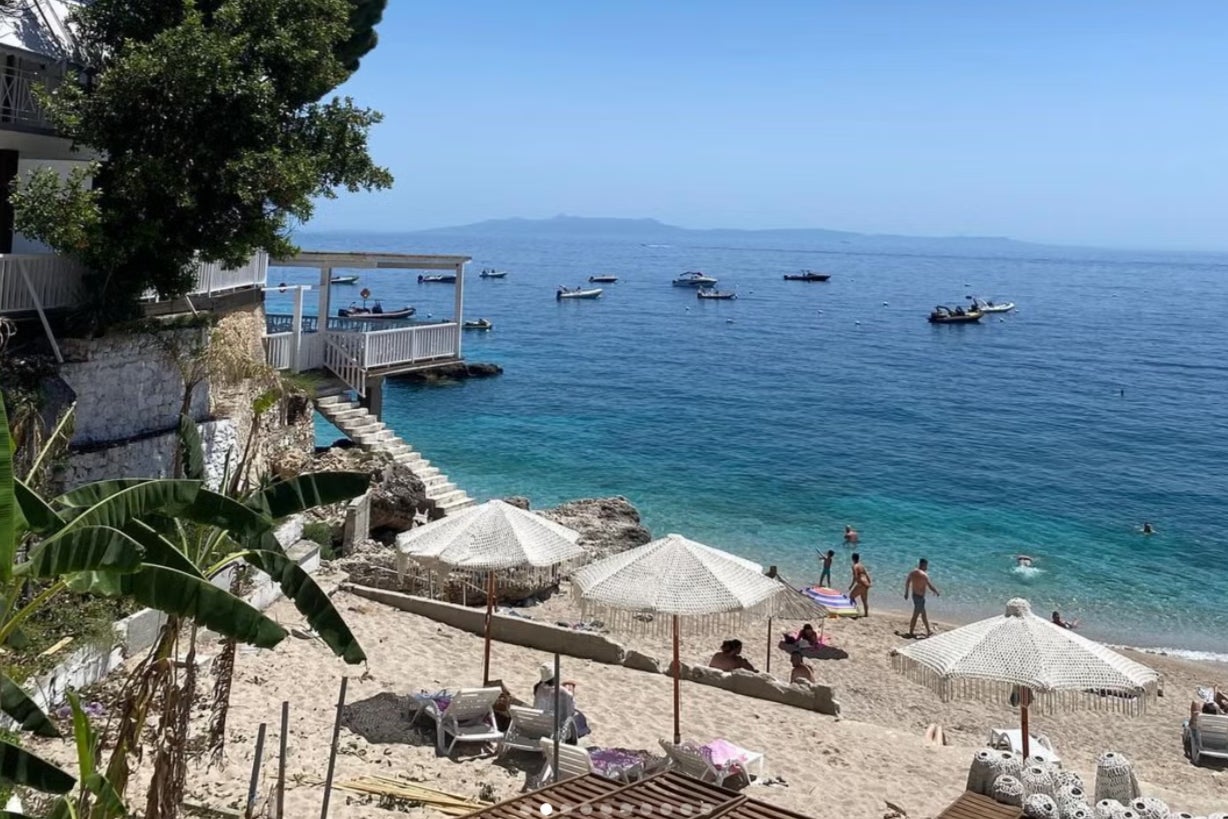
Read more: Escape the bustle of Paris for these regal towns less than an hour away
Albania is much cheaper than most European countries, and the one meal out we had in Tirana was delicious and reasonably priced: a perfectly cooked T-bone steak hungrily inhaled to a symphony of fireworks erupting outside. The food was simple and hearty, with the whole meal setting us back around £20 each despite being a fairly upmarket restaurant.
Before long, we were sat in a minibus organised by the festival headed for Kala and I was reminded of the country I had encountered previously. Motorways gave way to a never-ending sprawl of beige and dirty white apartment blocks dotted with minarets and fluttering red Albania flags. Whizzing past an inexplicably large quantity of gas stations, unfinished tower blocks, and apartments that appeared eerily deserted, you were left with more questions than answers. But before long, the urban sprawl became filled with signs offering homemade pasta, hairpin bends on winding mountain roads and breathtaking views. After a journey I would not recommend for vertigo sufferers, we finally made it to Dhermi. Before even speaking to any fellow revellers, I was feeling bonded with them for having made it to this far-flung destination in one piece.
Sprawled across five open-air stages in Dhermi, Kala is a playground for adults to run riot and a neighbourly, welcoming one at that, with many people sparking up conversations with us from nowhere. This year’s line up included performances from Detroit techno trailblazer Jeff Mills’ band, Tomorrow Comes The Harvest, Afrobeat and Jazz fusion band Kokoroko, Horsemeat Disco, DJs Haseeb Iqbal, OK Williams, Avalon Emerson, Job Jobse, Yu Su and much more – with some acts playing sets for as long as five hours.
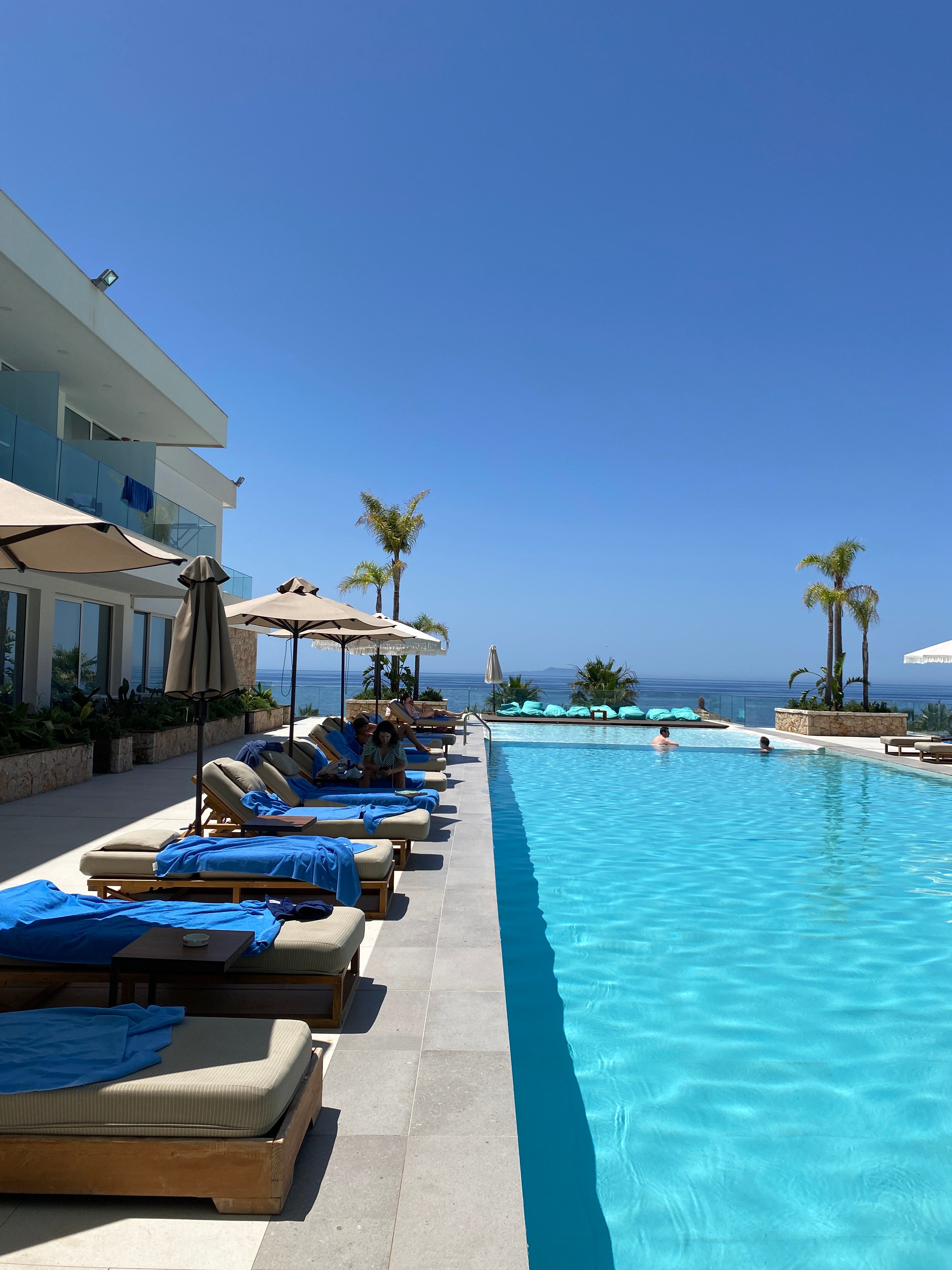
A definite highlight was a trip to Gjipe beach via a motorboat pumping tunes. Day parties are held there in a forest at the back of the secluded beach next to a stunning canyon. In the main site of the festival, my favourite stage was the Empire Stage, which helpfully backed onto the luxy Empire Beach Resort hotel we were staying in.
The standout sets during our visit were from Haseeb Iqbal and Yu Su. Iqbal’s feverish excitement about the music he was playing, which included everything from drum and bass to reggae, was infectious. Moreover, his enthusiasm could be yet further sensed when he told the crowd he had slugged 300 vinyl to the festival with him. The set from Yu Su – a DJ and chef born in the Chinese city of Kaifeng and who now lives in London – was somewhere between hypnotising and soothing.

What we ate in Dhermi was delicious, with a restaurant named after the Kosovan capital of Pristina a highlight. With food laid out on paper tablecloths, my friend and I each devoured gargantuan portions of deliciously oily, lemony potatoes, roast chicken, tzatziki, homemade bread, Greek salad and a beer – all for the humble price of around £12 per person.
Kala, Albania’s first international festival, is equal parts recreation and relaxation, straddling the line between festival and holiday perfectly – a composite which has become increasingly popular over the years. The festival is intimate, easy to navigate and well-organised, with something seemingly for everyone, including massages on the beach, meditation sessions and waterfall hikes.
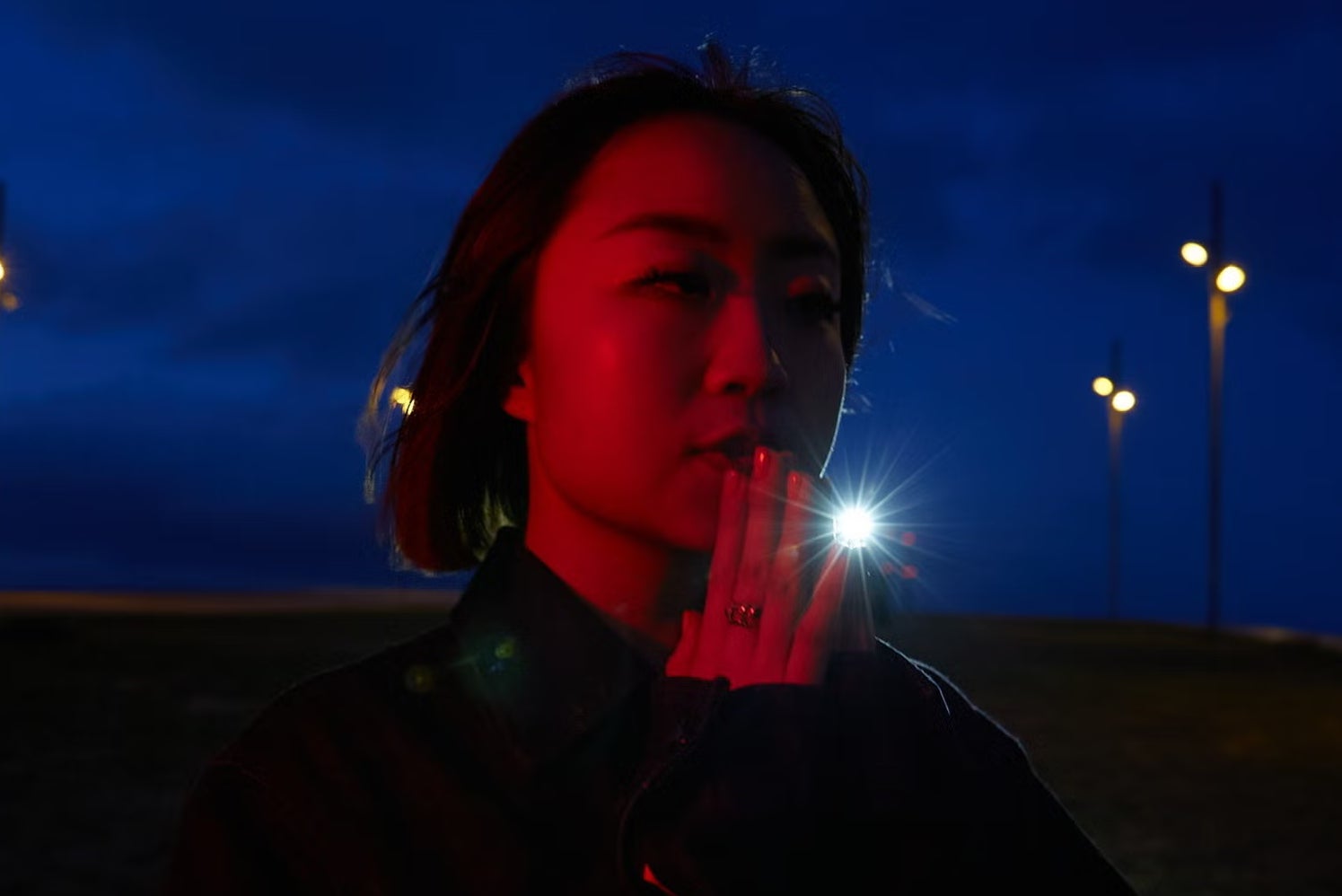
To sum up, Kala was a delight. The experience buoyed by the cloudless blue skies and the virtually non-existent queues for drinks (no doubt helped by the fact you pay with your wristband). But most of all, by the fact you very much feel like you are in Albania due to the fact so many Albanians attend the festival – with the organisers providing discounted tickets for residents of Albania, North Macedonia, Kosovo and Montenegro.
So don’t be put off by Albania arguably having the most menacing flag of all countries in the world (a black eagle on a red background), it’s is well worth a visit. There is a reason why the holiday destination keeps cropping up in conversations. And there is also a reason Albania’s beaches have exploded in popularity on TikTok, with the Albanian Riviera branded “the Maldives of Europe”. The country is god-damn gorgeous.
Travel essentials
Where to stay
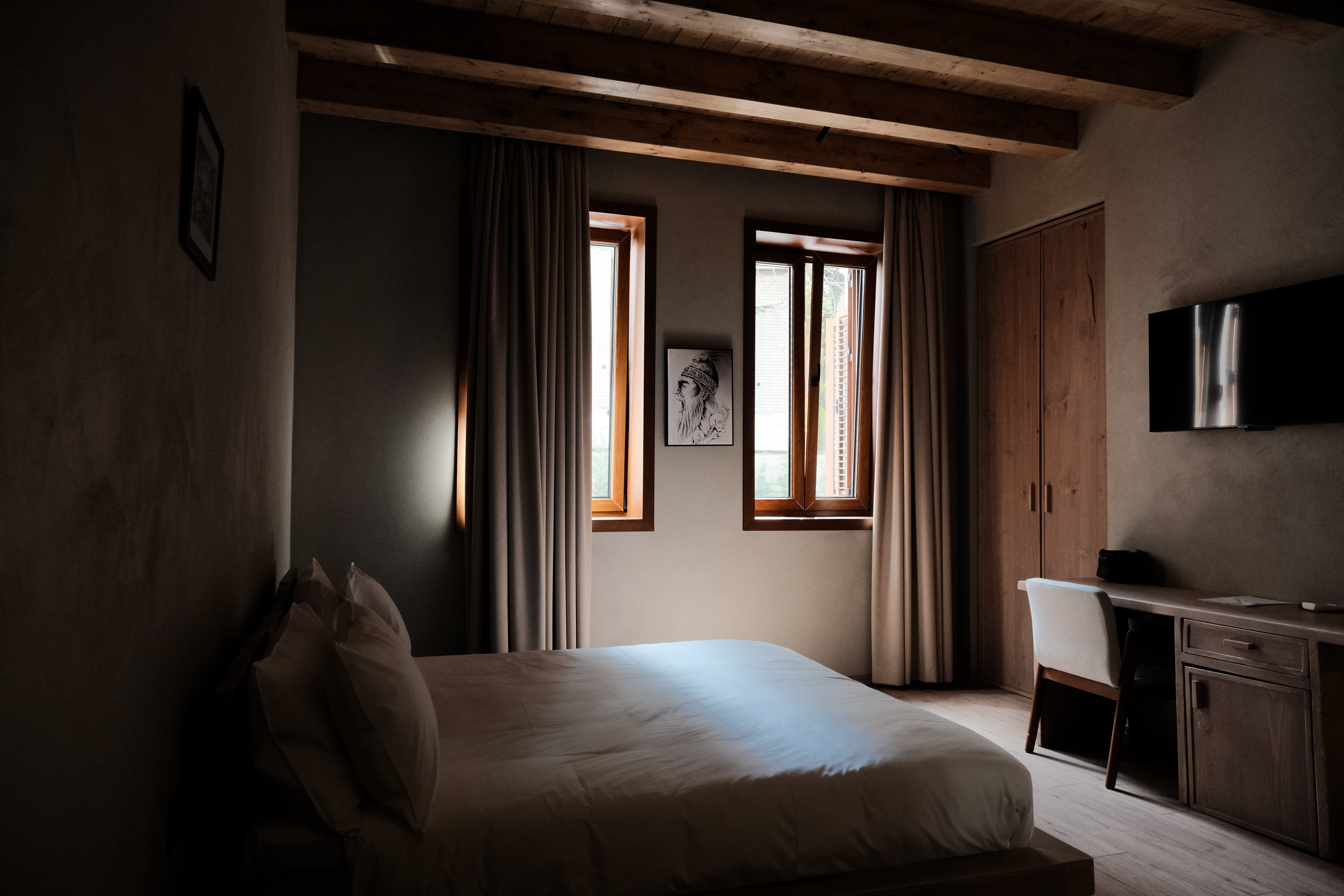
Faces & Places Boutique Hotel in Tirana is gorgeous. It is in a central location yet there is a distinctly peaceful, serene feeling to the place. Replete with beautifully designed rooms featuring wooden ceilings and tasteful, carefully curated furnishings, the hotel is home to helpful workers brimming with recommendations who are clearly running a tight ship.
How to get there
A number of airlines fly from across the UK direct to Tirana, including British Airways, Wizz Air, easyJet, Ryanair and Albawings. Flight time is around three hours.
Read more: Has Albania finally come of age as a tourist destination?







